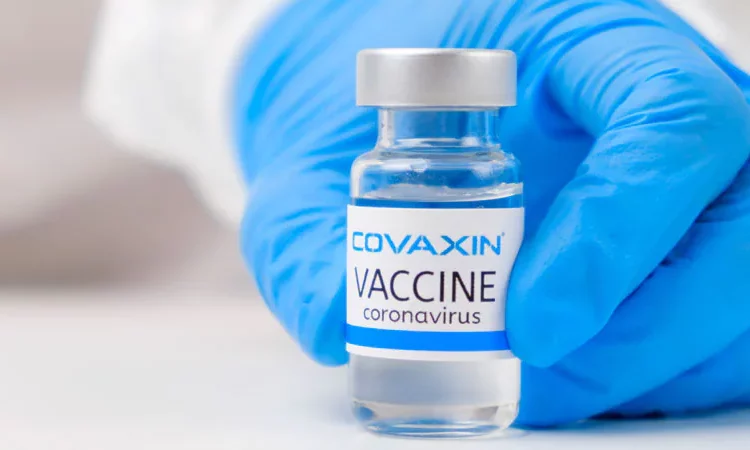Editor’s note: Find the latest COVID-19 news and guidance in Medscape’s Coronavirus Resource Center.
The Indian-made COVID-19 vaccine Covaxin strongly protected New Delhi healthcare workers against reinfection with the virus in the first half of 2021, including a period during the height of the Delta surge last spring, a new study finds. Among those who were fully vaccinated, the estimated effectiveness of the vaccine against reinfection was 86% (95% CI: 77% – 92%).
The findings, which also found that partial vaccination had no apparent effect, appeared January 7 in the journal JAMA Network Open.
“This reinforces the effectiveness of Covaxin in India,” said Awadhesh Kumar Singh, MD, DM, a senior consultant epidemiologist with GD Hospital and Diabetes Institute in Kolkata, India. Singh, who was not involved with the research, reviewed the findings for Medscape.
Covaxin, an inactivated whole virion vaccine produced by the firm Bharat Biotech, accounts for a small chunk of vaccinations in India, according to the nation’s Ministry of Health and Family Welfare. The wide majority of doses are of the Oxford-AstraZeneca vaccine, known in India as Covishield.
The World Health Organization added Covaxin, also known as BBV152, to its list of vaccines authorized for emergency use in November 2021. It found that the vaccine had an overall efficacy of 77.8% (95% CI: 65.2% – 86.4%) in a phase 3 trial.
For the new study, researchers led by Sumit Malhotra, MD, of All India Institute of Medical Sciences, tracked 15,244 healthcare workers at a tertiary care center out of 20,799 eligible workers from March 2, 2020, to June 18, 2021. Of those, 4978 (32.7%) were diagnosed with COVID-19 at least once. Their mean age was 36.6 years (10.3) years, and 55.0% were male.
A total of 3061 participants were excluded from the analysis for various reasons. Some died (n = 25, all but one attributed to COVID-19) but most (n = 2951) didn’t meet a requirement that they were reinfected more than 90 days after their first infection.
Of the remaining 1917 participants, 472 were unvaccinated, 356 were partially vaccinated, and 1089 were fully vaccinated. A total of 124 were reinfected. After eight were removed for various reasons, 116 were included in the analysis. They were mostly nursing staff (45.7%; nursing staff made up 33.3% of the entire 1917-member cohort) or paramedical/support staff (29.3%; these staff made up 39.8% of the entire cohort).
The analysis found that the risk of reinfection fell by 86% in the fully vaccinated workers (hazard ratio [HR] = 0.14, 95% CI: 0.08 – 0.23). Symptomatic reinfections fell by 87% (HR = 0.13, 95% CI: 0.07 – 0.24), and asymptomatic reinfections by 84% (HR = 0.16, 95% CI: 0.05 – 0.53). This is a “high protective effect,” the authors write.
No benefit from partial vaccination was seen.
“This study found an incidence density of reinfection of 7.3 per 100 person-years among HCWs [healthcare workers],” the authors write. “These cases occurred after a long follow-up period, of 8 months to 1 year, most notably during the second surge of COVID-19 cases, which was linked to the Delta variant.” That surge occurred from March to June 2021.
Study authors didn’t respond to requests for comment from Medscape.
Singh, the epidemiologist, said the study’s strengths include its adequately powered sample size and almost negligible missing data. However, he said, few older subjects are included (the oldest was 69), and there was no propensity matching with age, sex, body mass index, and comorbidities that may have influenced the outcomes.
Still, he said, the study has tremendous value about the effects of vaccinations on reinfections. “To reduce their risk of infection, all eligible persons should be offered vaccination, even if they have been previously infected with SARS-CoV-2.”
In an interview with Medscape, virologist Gagandeep Kang, MBBS, MD, PhD, a professor with the Wellcome Trust Research Laboratory at Christian Medical College in Vellore, India, said the study suggests that Covaxin “does a good job, with the caveats that this was during a Delta peak, and the period following vaccination was short. Given that the period of study is a short duration after vaccination, greater value may have come from seeing the duration of protection.”
The study offers no insight into whether Covaxin provides protection against the Omicron variant. However, Covaxin’s manufacturer announced via Twitter on January 12 that the vaccine booster provides “robust neutralizing antibody responses” against the Omicron and Delta variants.
No information about study funding was provided. The study authors, Singh, and Kang report no relevant financial relationships.
JAMA Netw Open. Published online January 7, 2022. Full text
Randy Dotinga is a freelance journalist who covers medicine and health.
For more news, follow Medscape on Facebook, Twitter, Instagram, and YouTube.
Source: Read Full Article
